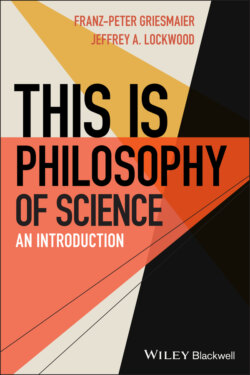Читать книгу This is Philosophy of Science - Franz-Peter Griesmaier - Страница 9
1 PILLARS OF SCIENCE: REASONS, KNOWLEDGE, AND TRUTH
ОглавлениеThe empirical sciences are dedicated to describing, explaining, and predicting natural phenomena, such as ionic bonding, predation rates, formation of galaxies, bird migrations, gravitational waves, protein metabolism, or the probability of an earthquake in northern California. The ultimate goal is to gain genuine knowledge about such phenomena – what exactly they are, what regularities govern their occurrence, why and how they occur, when they might happen in the future, and with what probability.
In subsequent chapters, we will investigate many of the difficult and fascinating issues involved in a successful exploration of the natural world. Some of those issues arise with equal force in different sciences, while others may arise in only one discipline, but not in any of the others, at least not in the same form. For now, however, we are going to discuss some of the concepts and procedures that arguably can be found in all empirical sciences. These include (i) the fundamental nature of reasons we give for accepting or rejecting a scientific hypothesis, or any ordinary claim about the world for that matter; (ii) the general structure of the different kinds of inferences we can make on the basis of observations; (iii) the nature of truth and the specter of relativism; and (iv) the relation between facts, hypotheses, laws, and theories. Having a good grasp of these concepts will prove invaluable for understanding the intricacies of empirical science and the philosophical problems that arise in the course of scientific investigations.
The initial discussion will be a bit on the abstract side, and you might at first find it puzzling how questions such as the ones we are going to raise in this chapter are of any relevance to the practice of science. The situation is perhaps similar to learning the rules of baseball before swinging a bat. Sure, you might hit the ball if you don’t know the how the game is played, but you might well run in the wrong direction afterward! And so, as our discussion proceeds in the later chapters, you will find that having gained mastery of some fundamental concepts in epistemology (the study of knowledge) is of great value. So let’s get going.
